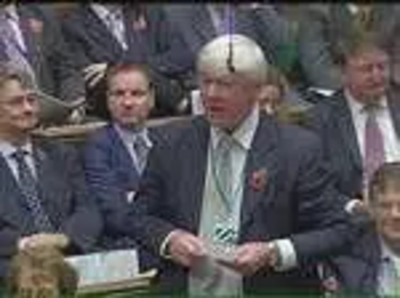The slow death of regional broadcasting

Rochdale MP Paul Rowen has claimed that the recent announcement by ITVof cutbacks in regional broadcasting, regional news and non-news items will lead to the 'slow death of regional broadcasting.'
Mr Rowen was speaking in a Westminster Hall debate that he led. He questioned ITV's commitment to regional broadcasting and suggested that ITN take over the regional news output instead of ITV.
Mr Rowen praised the contribution of local news services to a healthy democracy and called upon the Government to give greater support to struggling independent news broadcasters who provide public service broadcasting. Paul has been campaigning against ITV's proposals to reduce their public service broadcasting obligations by cutting the amount of local news coverage contained in their daily bulletins.
He said: "Regional news output is critical and it is important that ITV don't dictate from London. The news that regional programming could be dramatically curtailed is bad news and I hope by raising it in a debate in Parliament, ITV may reconsider their decision."
Mr Rowen also spoke of huge job losses at ITV, 1,000 jobs by the end of next February will be lost, including 430 in regional newsrooms.
Mr Rowen claimed that this would have a dramatic impact on the quality of programming. He told the debate, "I question whether any meaningful programmes can be produced by this limited number of people."
He continued, "Fifty per cent of consumers say that they are personally interested in events in their region, or events where they live. That confirms that audience support for the accessible and effective delivery of the public services that underpin public service broadcasting remains strong."
Mr Rowen also spoke about how local people value local news. He told the debate, "If ITV does not want to provide that service using public subsidy, we should suggest that ITN become the arm with which such services are provided, so that there is, and remains, a strong regional news output in the regions, provided by ITN if not by ITV. We ought to be setting higher standards for what is being produced than those in the model advanced by Ofcom. We ought to be looking to the future, not in terms of a diminution in provision, but as an opportunity, using the benefits of the digital dividend, to expand the range of provision. If that means that a subsidy of some sort is put on the use of the digital media, that should be used to fund that public service broadcasting element.
"This is an important debate because our constituents want and value regional news and programming. There is a short-term problem with ITV funding, but that should not lead to our losing sight of the fundamental founding principles on which independent television was set up. The value that ITV has given to the regions and the nations of the United Kingdom must not be lost. We need a debate, as the Secretary of State says, and I hope that this is a contribution to that debate. I hope that we can go forward and that, when Ofcom reports in the new year on the results of its consultation, we see something a lot better than what we are being presented with, which seems very much like a fait accompli."
